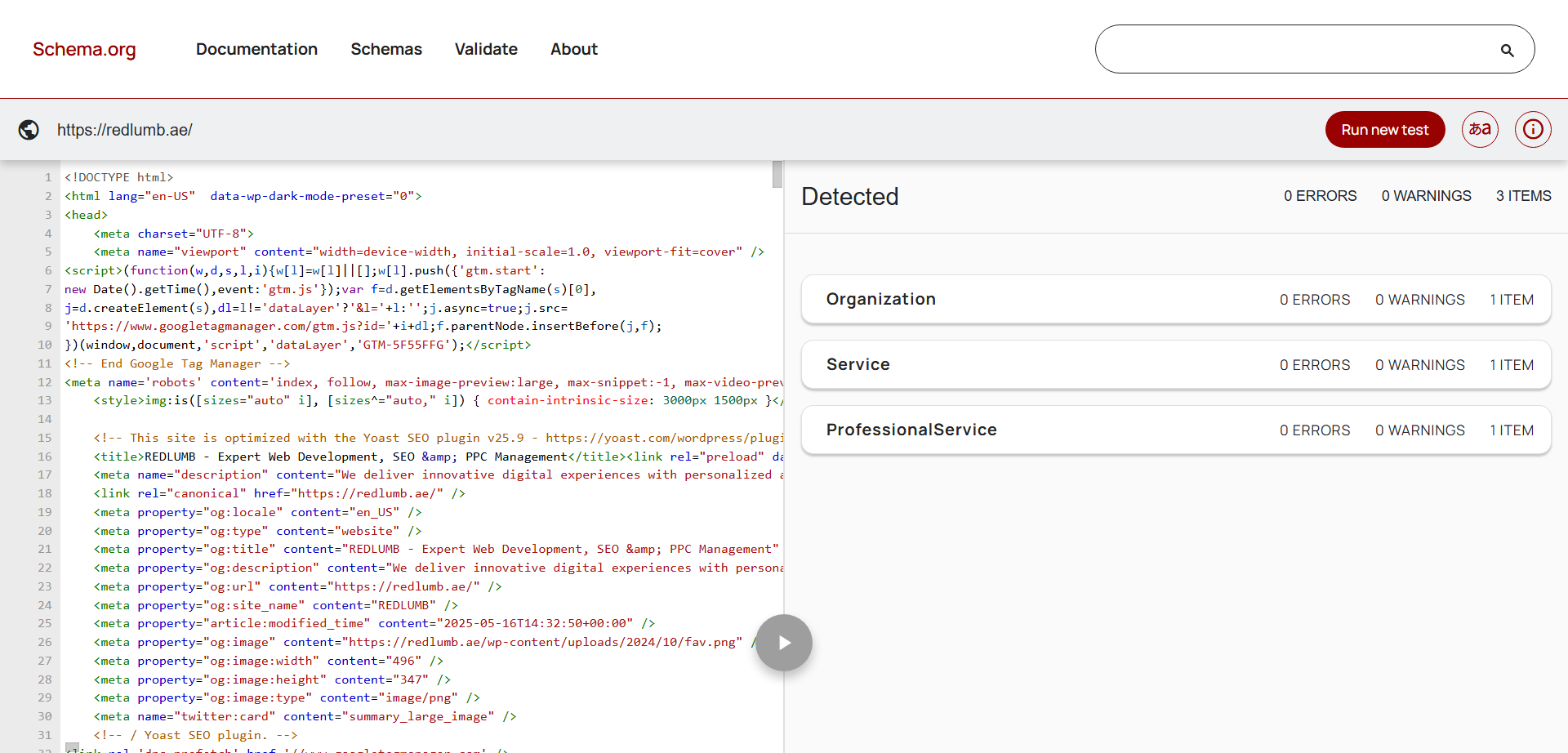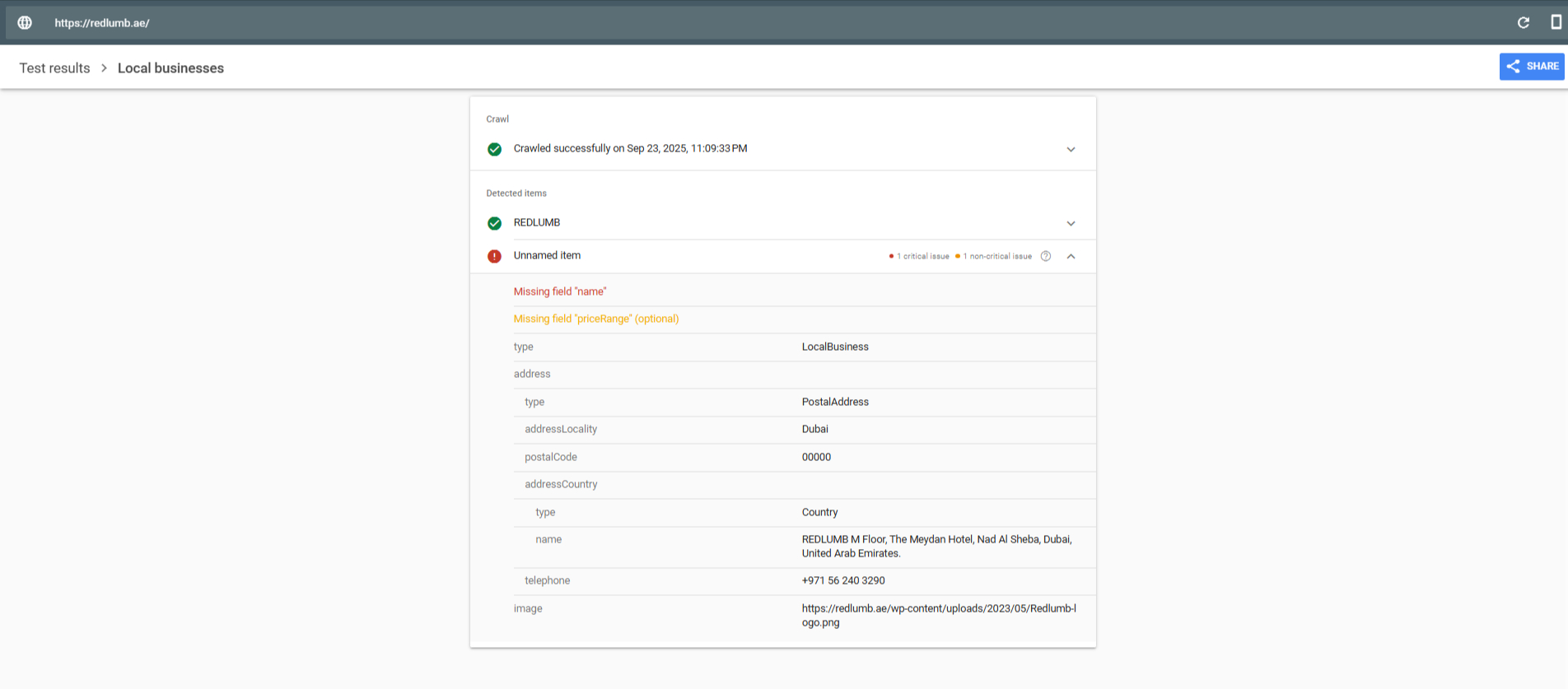Schema markup is structured data that you add to your website’s HTML to help search engines understand the specific meaning and context of your content. While search engines can crawl your pages and read the text, they often struggle to interpret what that content actually represents from a semantic standpoint.
When you implement schema markup, you’re providing search engines with explicit metadata about your content. For instance, instead of search engines seeing just “John Smith” on your page, schema markup can specify that John Smith is a Person with the jobTitle of “Software Engineer” at an Organization called “Tech Company Inc.” This structured approach eliminates ambiguity and helps search engines categorize and display your content more effectively.
The most common way to implement schema markup is through JSON-LD code, which can be added to your website’s HTML. Don’t worry, you don’t need to be a coding expert to use it. The code sits in the background and doesn’t affect how your website looks to visitors, but it dramatically changes how search engines interpret your content. Once you’ve added this structured data to your pages, search engines can create what we call “rich snippets.” Those enhanced search results include extra information like ratings, prices, or images. These enhanced listings stand out from regular search results, which naturally leads to more clicks. Let me break down the most useful schema types that can make an immediate impact on your website’s performance. While it’s not a direct ranking factor, it significantly improves your click-through rates, which does impact your rankings over time. When your search listings include helpful information like ratings or prices, more people click on them compared to plain text results. Apart from clicks, schema markup helps search engines categorize your content more accurately. This means you’re more likely to show up for relevant searches and less likely to appear for irrelevant ones. It’s like filing your content in the right folder so people can find it when they need it. Here’s something many people don’t realize yet: schema markup has become crucial for appearing in AI-powered search features like Google’s AI Overviews. When AI systems compile information to answer user questions, they heavily favor content that’s properly structured with schema markup. Think about it from the AI’s perspective. When it’s trying to answer a question about “best restaurants in Chicago,” it can much more easily pull information from websites that have clearly marked up their business information, ratings, and reviews. Without schema markup, your content might be overlooked entirely, even if it’s high-quality and relevant. As AI continues to reshape how people search and find information, websites with proper schema implementation will have a significant advantage in being cited and recommended by these systems. If you’re feeling overwhelmed, start small. Choose one or two schema types that match your most important content. For example, if you run a local business, begin with Local Business Schema. If you sell products online, start with Product Schema. Before you implement anything, use Google’s Rich Results Test tool to check if your markup is working correctly. This free tool will show you exactly how Google sees your structured data and highlight any errors that need fixing. If you’re managing multiple websites or complex e-commerce platforms, the best way to implement schema is by consulting with experienced SEO management in the UK who specialize in schema implementation to ensure proper setup and ongoing maintenance. Remember, consistency is key. Once you start using schema markup, make sure to keep it updated as your content changes. Outdated or incorrect schema can actually hurt your search performance, so treat it as an ongoing part of your website maintenance. Schema markup has become an essential component in SEO for staying competitive in search results. As more websites adopt structured data and AI-powered search features become the norm, the sites that invest in proper schema implementation will continue to gain advantages over those that don’t. Moiz Banoori is a seasoned Digital Marketing professional with over eight years of expertise in content creation and digital journalism. At REDLUMB, he spearheads teams to craft impactful SEO strategies that drive online growth and visibility. With a background in journalism, Moiz leverages his expertise in digital marketing to develop effective strategies that boost online visibility and help clients achieve their goals.
How Does Schema Markup Actually Work?

Different Types Of Schema Markup
Is Schema Markup Really Important For SEO
Schema Markup & AI Overviews
What Should You Do For Schema Markup?






